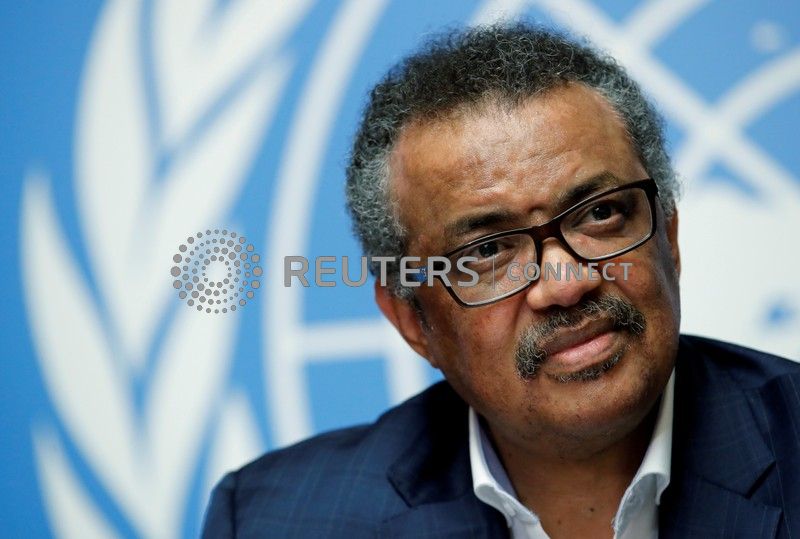World Health Organization director-general Dr Tedros Adhanom Ghebreyesus would have struck a chord that millions of people would have related well to yesterday.
Speaking during a media briefing, Dr Tedros said COVID-19 was much more than a health crisis.
By yesterday, more than one million confirmed cases of COVID-19 had been reported to the WHO, including more than 50,000 deaths.
It’s getting to a point of no return for millions of people around the world.
It’s a frightening reality of how life now appears to hang by a thread.
Surely, by now, the world is aware of the frightening impact of COVID-19.
Its impact on our lives has certainly changed the way many of us now view life in general, relationships and habits. Dr Tedros pointed out the profound social and economic consequences of the pandemic.
He spoke about the restrictions many countries have put in place to protect health, and suggested these were taking a heavy toll on the income of individuals and families, and the economies of communities and nations.
It’s a shared opinion.
Thousands of Fijians can relate to this.
They know because many were part of the first wave of people economically impacted directly.
The Attorney-General, Aiyaz Sayed-Khaiyum, had made the announcement on March 26, that more than 25,000 people lost their jobs in the tourism industry directly due to COVID-19.
We agree with Dr Tedros, that we are in a shared struggle to protect both lives and livelihoods.
He has suggested that in the short term, countries can ease the burden on their populations through social welfare programs to ensure people have food and other life essentials.
For some countries, Dr Tedros said, debt relief is essential to enable them to take care of their people and avoid economic collapse.
He said it was an area of co-operation between the WHO, the IMF and the World Bank.
But ultimately, he said, the best way for countries to end restrictions and ease their economic effects is to attack the virus, with the aggressive and comprehensive package of measures that focused on: find, test, isolate and treat every case, and trace every contact.
He warned that if countries rushed to lift restrictions too quickly, the virus could resurge and the economic impact could be even more severe and prolonged.
He said, financing the health response was, therefore, an essential investment not just in saving lives, but in the longer-term social and economic recovery.
Dr Tedros urged countries to ensure core public health measures were fully funded, including case-finding, testing, contact tracing, collecting data, and communication and information campaigns.
He called on countries and partners “to strengthen the foundations of health systems. That means health workers must be paid their salaries, and health facilities need a reliable supply of funding to purchase essential medical supplies”.
There was a great need as well, he said, for countries to remove financial barriers to care.
“If people delay or forego care because they can’t afford it, they not only harm themselves, they make the pandemic harder to control and put society at risk,” he warned.
He said: “Several countries are suspending user fees and providing free testing and care for COVID-19, regardless of a person’s insurance, citizenship, or residence status. We encourage these measures. This is in an unprecedented crisis, which demands an unprecedented response.”
But suspending user fees should be supported with measures to compensate providers for the loss of revenues.
He urged governments to also consider using cash transfers to the most vulnerable households to overcome barriers to access.
We live in unusual times now.
There is a need for unusual measures.
We will look to the State to ensure our safety and wellbeing.
Our challenge though should continue to focus on adhering to advice.
There is no other way!






